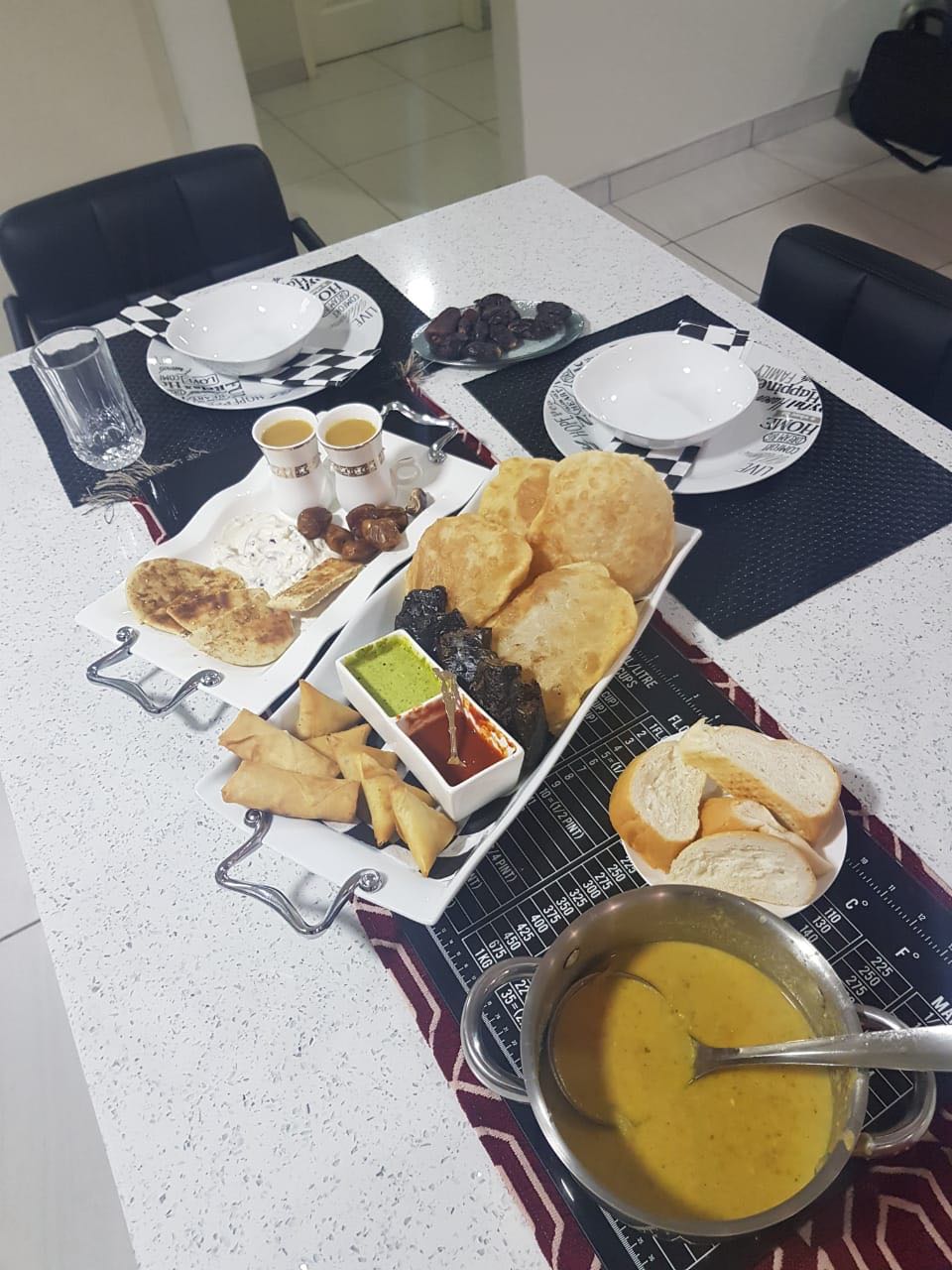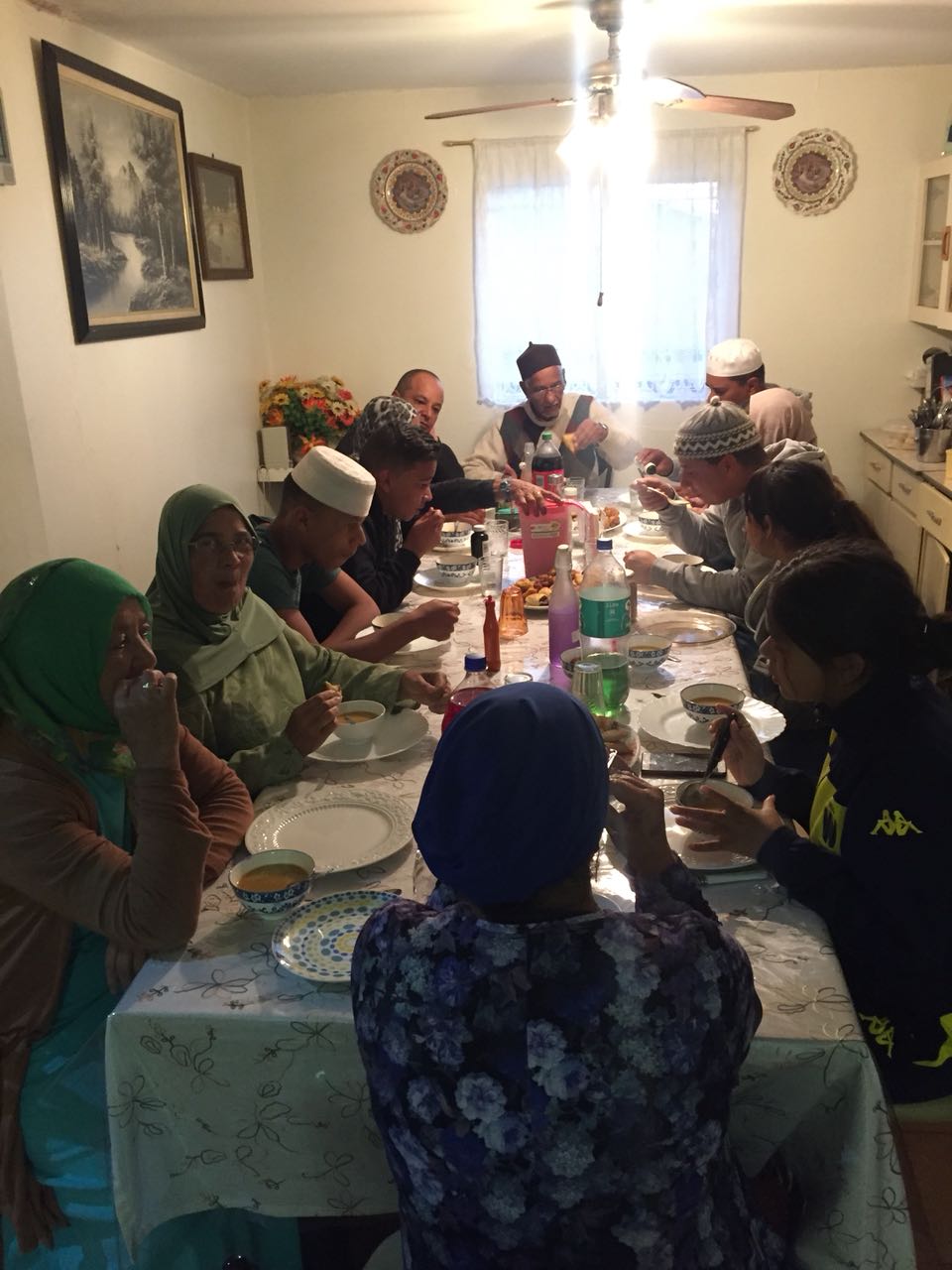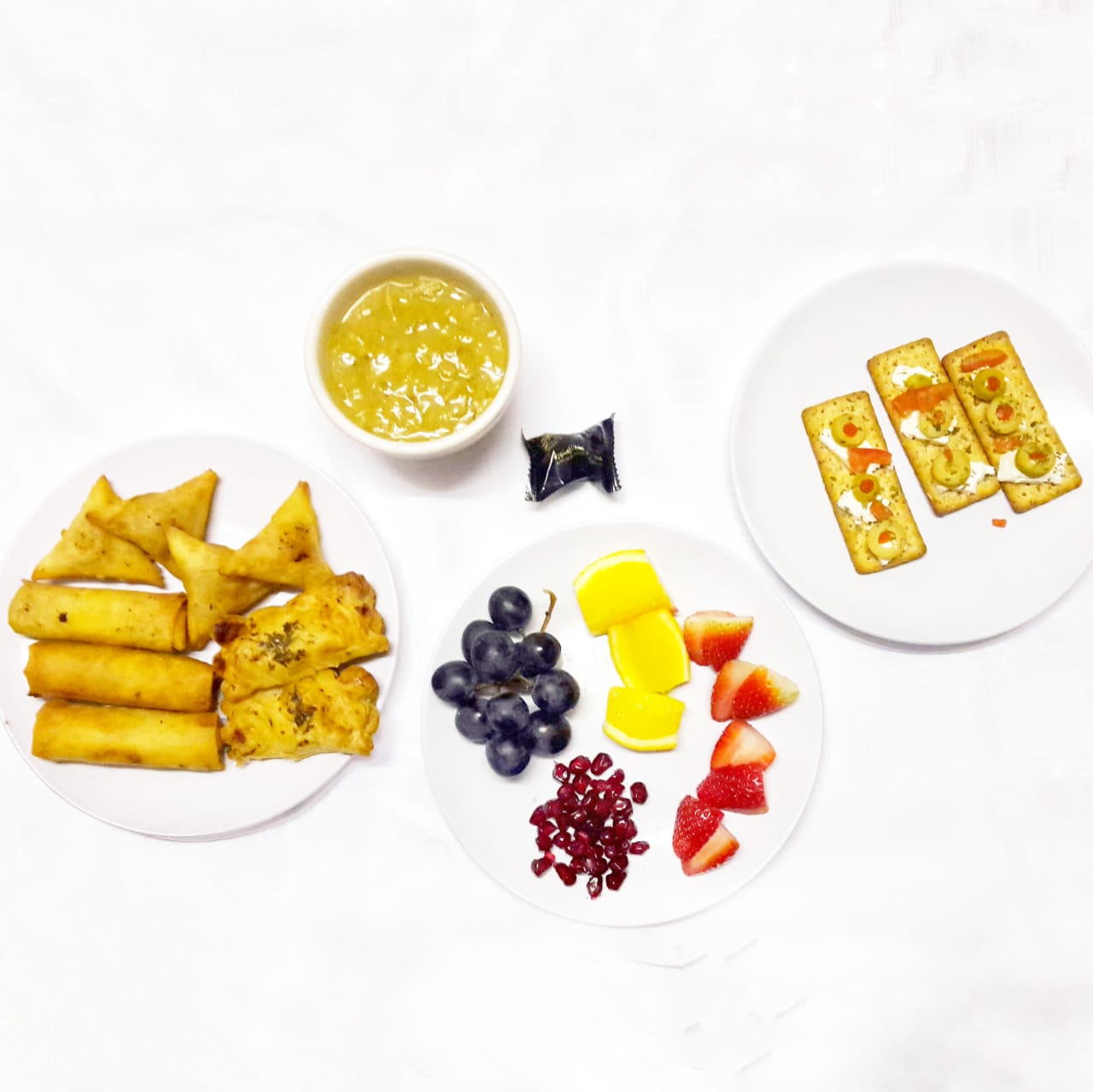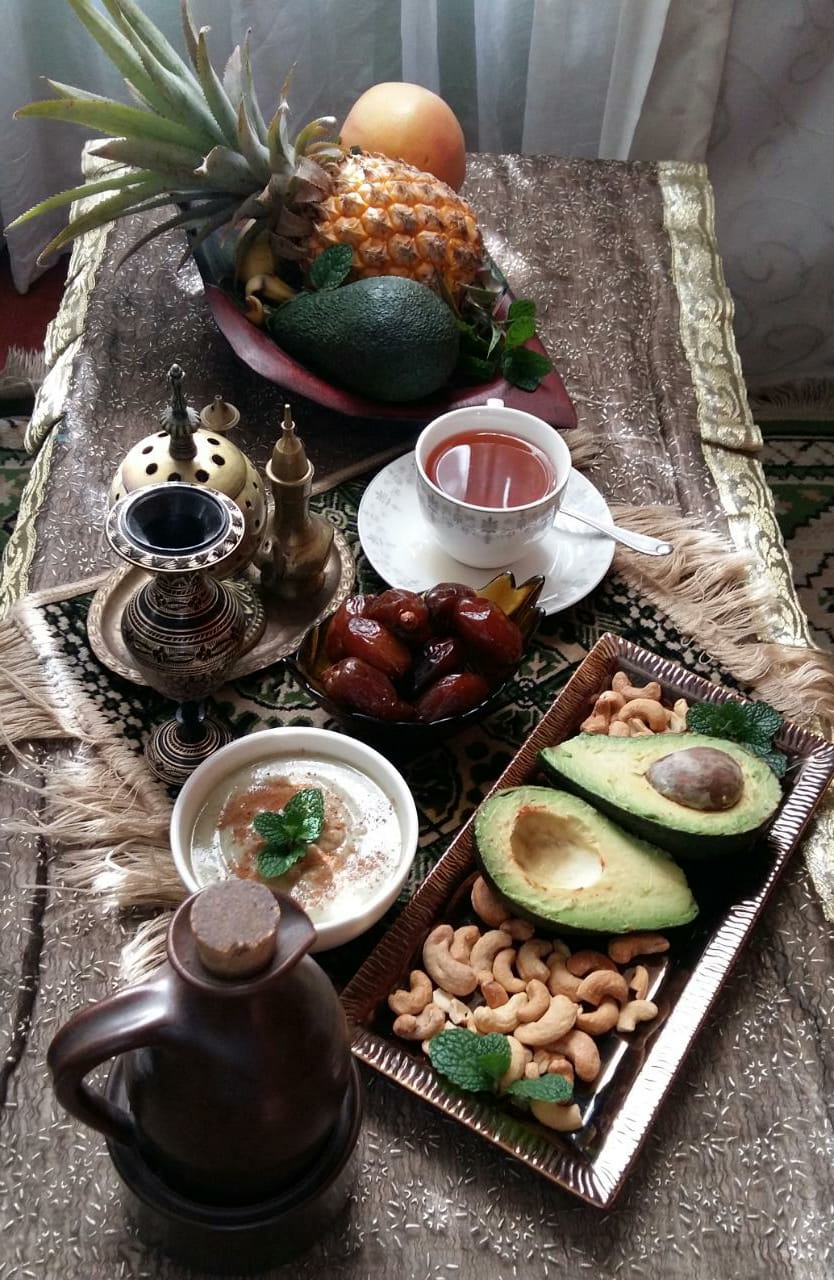Muslims all over the world have been observing the month of Ramadan for the past few weeks. Different cultures have different foods they eat and rituals they follow in Ramadan – besides the obligatory Muslim traditions like fasting, prayer, and charity. SHAAZIA EBRAHIM and FATIMA MOOSA spoke to Joburg Muslims from various backgrounds about the practices they abide by in their own homes.
Shaakira Mayet, 24, Azaadville, Johannesburg
Usually we would start by breaking our fast with kajoor (dates) and zamzam (well water from Saudi Arabia). We would move on to having some yogurt with breads and kahwa (Arabic coffee). This isnt something we grew up eating but we went for Umrah (pilgrimage) last year and I could just not stop eating the labneh (Arabic yoghurt). I’ve added some pomegranate and dukkah (Middle-Eastern spice blend) powder and weve been having dukkah naan (bread) to go with that. We have a bit of savouries as well – thats something that we grew up eating. It’s important because one of the reasons of fasting is to identify with those who don’t have food and to experience what the poor experience daily, but it is also an accomplishment so having our favourite foods and savouries and the things we enjoy is a sense of reward at the end of the fast. I’ve been seeing posts about how unhealthy it is but we’re not eating a lot of it and it’s something to look forward to. Personally, I need to have samoosas everyday. After that we’ve been having different kinds of soups like chicken corn soup, haleem (Indian soup with wheat or barley, meat, and sometimes lentils), vegetable soup, and butternut soup. After this we’ll pray maghrib (evening prayer) and I’ll always make a meal at the end and even though we don’t eat a lot of it, the leftovers we’ll have for sehri, the morning meal.
Laylah Sallie, 18, Bosmont, Johannesburg
For sower (morning meal) my family and I eat in the kitchen. We have a smoothie, toast with either eggs or polony or a cereal of our choice. We also have a lot of water as per my mother’s orders – and would your mother even be your mother if she didn’t make you eat a banana for sower? We have boeka (evening meal) at my grandmother’s house. Every night we are at least 19 people that boeka together including my grandparents, their three sons and their families, as well as my grandmother’s sister and additional guests. We break our fast with dates and water followed by soup and savouries. Then we all make salaah (pray) in the lounge together, after salaah we have the main dish of the evening which is whatever my grandmother has decided to make from a wide range of curries, bredies, pastas. During Ramadan we also uphold the long standing tradition of sending a dish to our neighbours, the youngest children in the family are sent to neighbours with a plate of goods and exchange food – generally savouries or sweet malay dishes like pumpkin fritters. This tradition was created to make sure you know your neighbour has food to break their fast with. It also brings the community closer together.
Safiya Umar, 25, Lenasia, Johannesburg
Sometimes there’s only three of us that break fast at home, and my brother and cousin decide to break fast at the mosque. We’re not very lavish or extravagant in what we eat. Even though I come from a Malawian background, I grew up in an Indian community so I grew up breaking fast with samoosas and pies and other savouries. In my culture, I do know that in certain households they have sweet potato – we also have it sometimes. That’s like the iconic traditional meal for Malawians. It’s made with pounded peanuts, sweet potato, and sugar. It tastes really amazing. We have light food for sehri like tea and toast or porridge – rice porridge, sometimes sunshine porridge. We do have a tradition where we give our neighbours food so whatever is baked, like cakes or samoosas, we share with my neighbour. Sometimes my brother takes this to the mosque as well.
Farhana Chucks, 22, Johannesburg
My family’s ritual or a must-have at the iftar table is savouries. So any kind savouries but it’s mostly samoosas, pies or spring rolls. It doesn’t matter who is on a strict diet or who won’t have savouries, it is just a compulsory thing to be on the table for iftar. Haleem and savouries are a must have. That’s something we all have every single day. There are different flavours of samoosas every single day and then it’s a personal preference to have fruits. It’s a must-have to have fruits. Any kind of fruits, mostly what is in season. I try to have something healthy when I break my fast so I don’t eat a proper meal straightaway I just snack on whatever there is. Then I’ll eat half an hour or an hour later or maybe after Taraweeh (special Ramadan prayer). My brother’s preference would be different. He would have his savouries and haleem. He doesn’t eat fruits. He has his meal straightaway. My mom starts off with haleem and savouries and she’ll have a light meal, not a proper meal.
Zyn-neerah Fakeemeah, 22, Johannesburg
For sehri my family and I usually have something warm because it’s winter. Most likely we’ll have tea, sometimes herbal tea like green tea, rooibos tea, whatever is available at home, sometimes Moroccan mint tea or Turkish tea. With that we always have dates on the table. Any type of dates. Something sweet. Whatever fruits we have at home we’ll have in the morning. So avocado or even citrus fruit like grapefruits or oranges or bananas. We have bananas mostly every day and just for energy and keeping us full. We maybe have a handful of nuts or dried fruit like raisins, cranberries or apricots as well. Most of the time we have cereal on the table so any oats, jungle oats, rolled oats, sometimes Kelloggs cornflakes. In this particular picture, I actually mixed oats with yoghurt and I liquidised some avocado in it and cinnamon. So that’s basically what we have everyday for sehri. Something warm to drink, nuts, dried fruits and cereal. With Indian families, usually tea is a must be it spicy tea or boiled tea or whatever it is. Having tea at least in the morning for sehri or for iftar is a must. With most Indian families, there must be tea time, so to be with tradition we would include tea in our breakfast and iftar. On that note, the dates as well, so we might not eat dates throughout the year but in Ramadan it would be a must for sehri and iftar because it’s encouraged to break your fast with an odd number of dates which is a religious custom.













